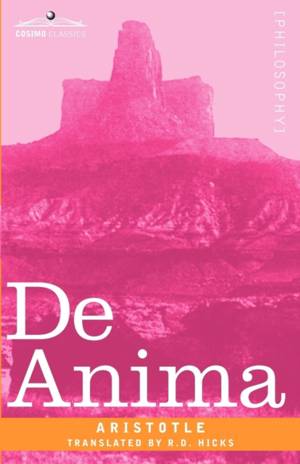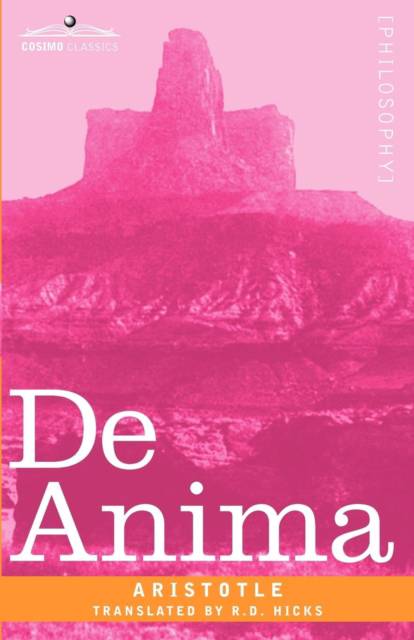
- Retrait gratuit dans votre magasin Club
- 7.000.000 titres dans notre catalogue
- Payer en toute sécurité
- Toujours un magasin près de chez vous
- Retrait gratuit dans votre magasin Club
- 7.000.0000 titres dans notre catalogue
- Payer en toute sécurité
- Toujours un magasin près de chez vous
Description
Knowledge, however, is an attribute of the soul, and so are perception, opinion, desire, wish, and appetency generally; animal locomotion also is produced by the soul; and likewise growth, maturity, and decay. Shall we then say that each of these belongs to the whole soul, that we think, that is, and perceive and are moved and in each of the other operations act and are acted upon with the whole soul, or that the different operations are to be assigned to different parts? -from Book I The writings of Greek philosopher ARISTOTLE (384BC-322BC)-student of Plato, teacher of Alexander the Great-are among the most influential on Western thought, and indeed upon Western civilization itself. From theology and logic to politics and even biology, there is no area of human knowledge that has not been touched by his thinking. In De Anima-which means, literally, On the Soul-the philosopher ponders the very nature of life itself. What is the essence of the lifeforce? Can we consider that plants and animals have souls? How does human intellect divide us from other animals? Is the human mind immortal? All these questions, and others that seem unanswerable, are explored in depth in this, one of the most important works ever written on such eternal questions. Students and armchair philosophers will find it a challenging-and rewarding-read.
Spécifications
Parties prenantes
- Auteur(s) :
- Traducteur(s):
- Editeur:
Contenu
- Nombre de pages :
- 108
- Langue:
- Anglais
Caractéristiques
- EAN:
- 9781605204321
- Date de parution :
- 01-12-08
- Format:
- Livre broché
- Format numérique:
- Trade paperback (VS)
- Dimensions :
- 140 mm x 216 mm
- Poids :
- 136 g

Les avis
Nous publions uniquement les avis qui respectent les conditions requises. Consultez nos conditions pour les avis.






